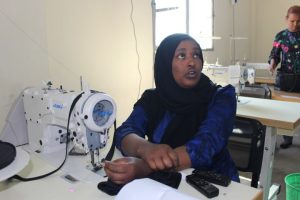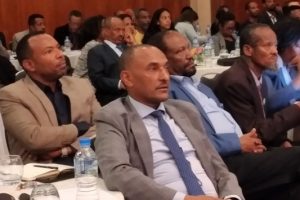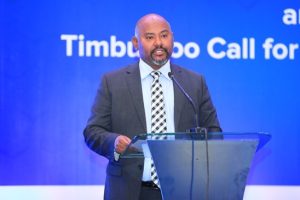
International Relations Expert asserted that Ethiopia’s neutral diplomacy and pragmatic approach in the current changing world order has helped the nation uphold its impartial position without compromising national interests.
As a founding member of continental and international organizations, including the United Nations (UN) and the African Union (AU), Ethiopia’s international relations have long been characterized by a neutral diplomatic stance. An international relations expert expressed that the country has played key roles in representing Africa and championing continental interests on the global stage. Ethiopia has cultivated strong and sound diplomatic relationships with countries worldwide, particularly neighboring nations, to ensure its national interests are protected through neutrality.
Diplomacy and International Relations Expert Bayisa Tesfaye (PhD) stated that over the past years, the nation has continued to pursue a neutral and mutually beneficial foreign policy. Ethiopia’s neutral diplomatic approach is pragmatic in safeguarding both national and communal interests, which is crucial for realizing the country’s vision.
Such a diplomatic approach requires a meticulous strategy to avoid negatively impacting the interests of other countries. In today’s dynamic world, the Expert stressed the necessity to build strong economic and diplomatic relations to secure both individual and collective interests.
Citing China and India as examples of neutrality, having founded the BRICS bloc while maintaining strong economic cooperation with the Western world, Bayisa indicated that Ethiopia’s recent joining of the BRICS alliance further demonstrates its commitment to neutral diplomacy and its refusal to align with any particular group.
Adhering to its neutral diplomacy, Ethiopia’s membership in BRICS is a significant diplomatic achievement that enhances the nation’s credibility and role in regional and international politics. According to Bayisa, the admission showcases the country’s earned trust and acceptance due to its unbiased stance.
By aligning with its neutral diplomacy and non-interference in the internal affairs of others, which fosters coexistence, the nation continues to pursue neutrality, he believed.
The Expert further stated that Ethiopia has elevated its diplomatic influence in the region and beyond, focusing on regional peace, stability, and economic development. Its contributions to conflict resolution in the region and globally demonstrate Ethiopia’s commitment to peacebuilding and sustainable development.
The nation has actively engaged with regional and multilateral organizations like the AU, UN, IGAD, and others, advocating for its interests and continental advantages on a wide range of issues, further exemplifying its commitment to neutrality. Moreover, the changing global order presents significant opportunities for developing countries like Ethiopia, he indicated.
Foreign Affairs Minister Gedion Timothewos (PhD) stated that Ethiopia’s membership in the BRICS bloc would serve the country in ensuring its national interests and benefiting Africa as a whole.
As a country with a long history of strong diplomatic engagement and a founding member of various international organizations, Ethiopia’s membership enhances its pan-African role in shaping the new world order. As the country embarks on rapid economic growth, joining the bloc would support the nation in securing financial resources and facilitating ease of doing business and cooperation.
Beyond amplifying Africa’s voice, Ethiopia’s neutral position in global diplomacy, as part of its non-alignment strategy, would contribute to promoting peace and security among nations. Additionally, it would help attract new investments and facilitate various areas of cooperation.
BY HAILE DEMEKE
THE ETHIOPIAN HERALD THURSDAY 21 NOVEMBER 2024





